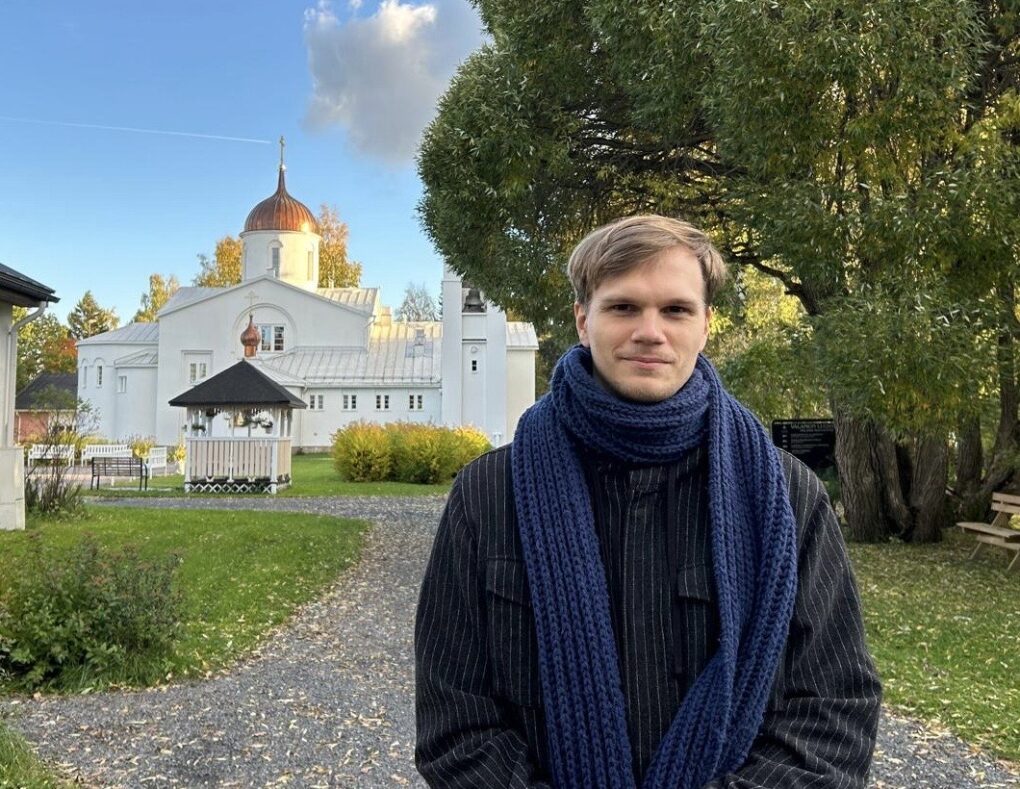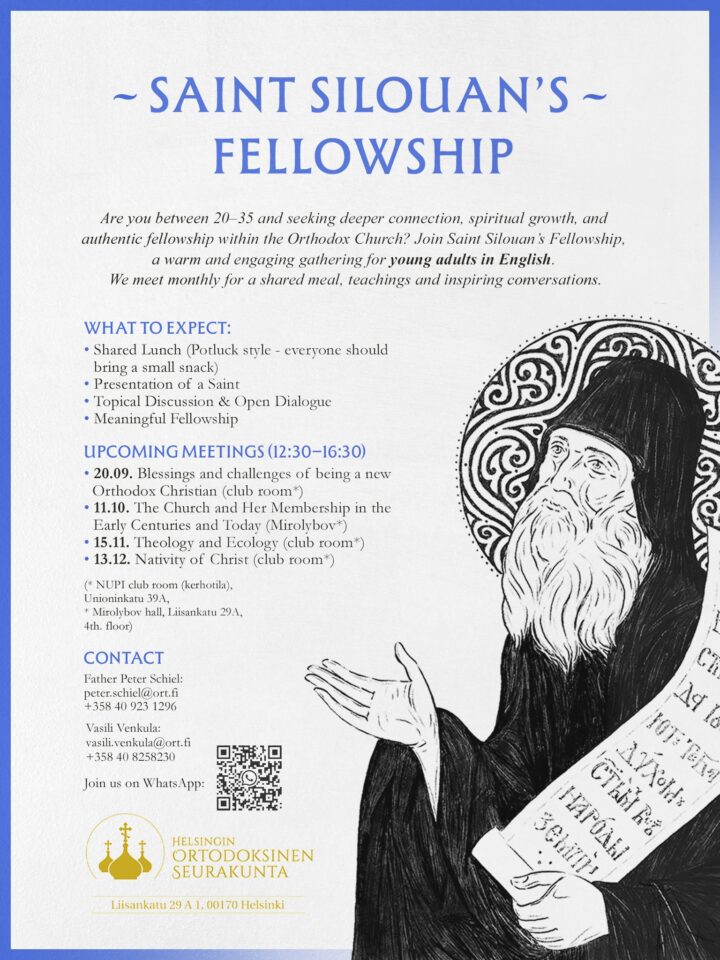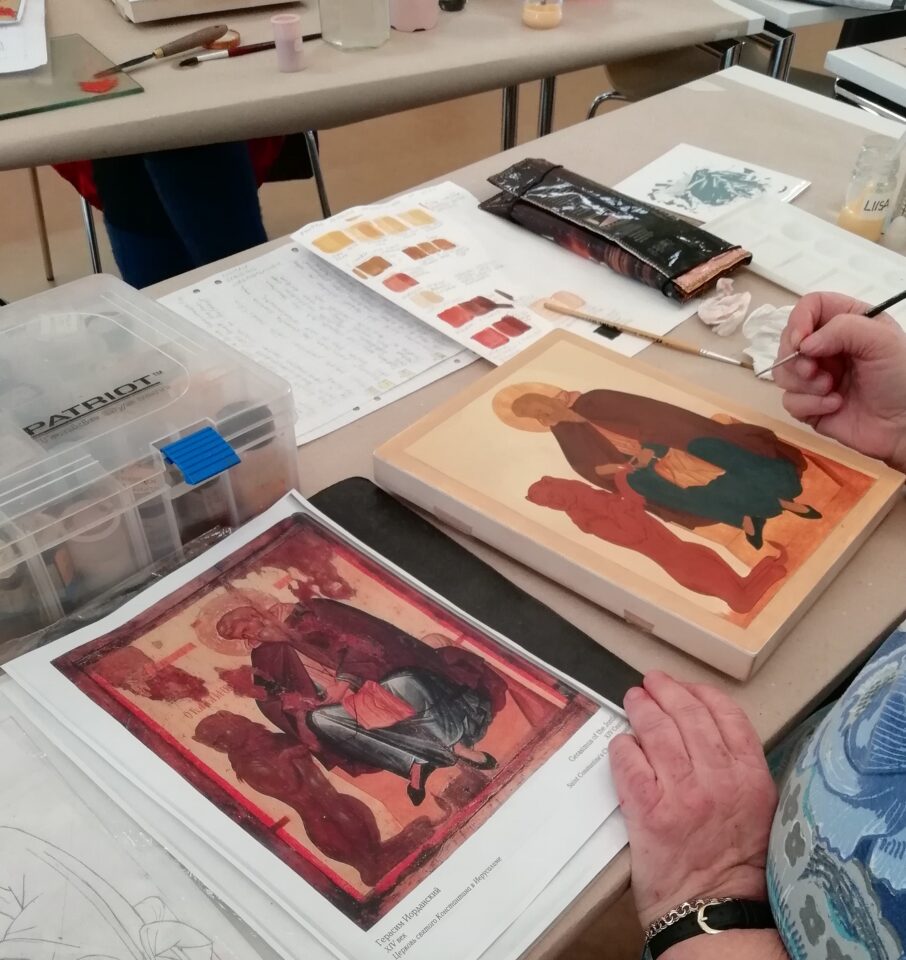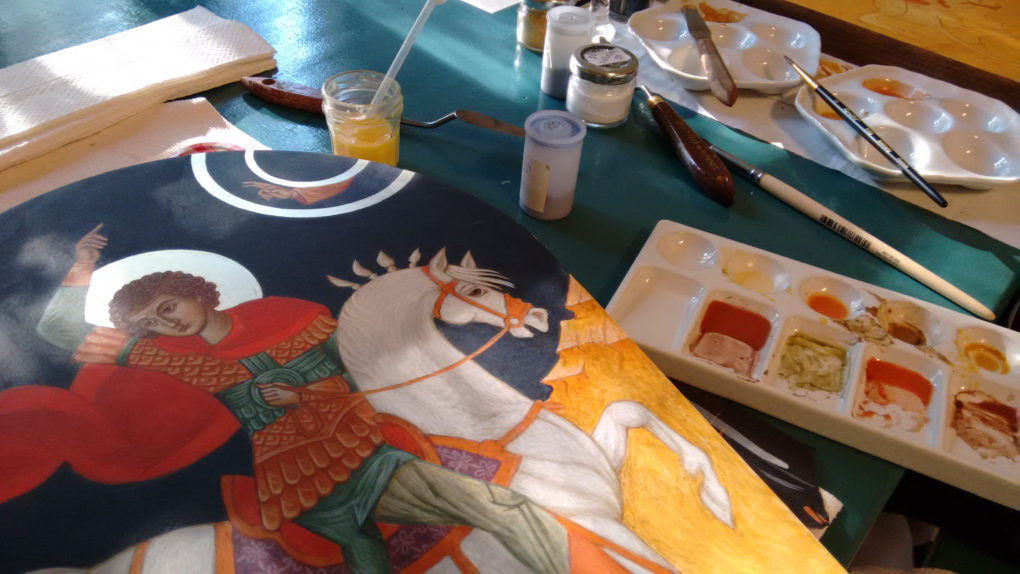
"I hope that I will slowly begin to understand that this living river cannot be fully grasped or controlled by any one person’s mind or thoughts. To truly step into its flow, I must be willing to also leap into the unknown. " Text and Photo: iikkamatti Hair
In June, a few months after our chrismation, we went on a trip to Valamo together with our catechumen group. Together, we reflected on our experiences in joining the church and our time as catechumen. Some themes were recurring. We discussed how our identities as Orthodox Christians were still forming, and how this left us at times feeling slightly vulnerable. For example, we might be uncertain about some aspects of theology or have some unresolved questions about the faith. When expressing these uncertainties, sometimes different people within the Church, as well as online sources would give us conflicting kinds of answers to these questions.
As a catechumen and a new Orthodox christian, there has been for me a temptation to deny the vulnerability and lack of certainty of being a “beginner”. There’s a pressure to amass as much theoretical or factual knowledge about the faith as possible. This is done in order to feel myself to be in control, to know that I am right. However, the pursuit of perfection and control at this stage prevents me from seeing the fact that I am indeed a beginner—barely at the beginning of the path. There can be unexpected blessings in accepting my uncertainty. When I accept the fact that I don’t know, my heart can remain humble, sensitive and compassionate also towards the weaknesses of others, because I can see my own more clearly.
The message of total control is often conveyed through social media. There, some Orthodox “influencers” confidently tell us how we should relate to the church and its traditions, often providing cultural and political critiques from an Orthodox perspective. In their eyes, the world is an ideological battleground in which the church is imagined mostly as a political and ideological actor. In this worldview, the church’s teachings and traditions are harnessed for worldly, political purposes. God is, in a sense, made into a mascot for a kind of football team. Rather than me serving God, God is used to serve me, to bolster my self-assurance. At the same time, it is forgotten that I myself am supposed to transform myself internally as I approach Him. I could make a guess that in many cases, behind this confidence and apparent “firmness” lies a deeper insecurity and vulnerability, as well as an inability to face them.
I’m gradually beginning to understand that the Orthodox Church is a living tradition that has to be first and foremost experienced, and lived. A vital aspect of Christian life is to exist within a real connection with a local church through participating in its liturgical and spiritual life. The church begins to unfold like a river of spiritual wisdom flowing through millennia into the present moment. I hope that I will slowly begin to understand that this living river cannot be fully grasped or controlled by any one person’s mind or thoughts. To truly step into its flow, I must be willing to also leap into the unknown.
Iikkamatti Hauru

I’m Iikkamatti Hauru, a 27 year old artist and graphic designer from Helsinki. I joined the Orthodox Church together with my wife in March of 2024. The significance of Orthodoxy in my spiritual and everyday life is gradually unfolding, hopefully with a little more depth with each passing day.

 Päivän sana
Päivän sana  Päivän pyhät
Päivän pyhät 

